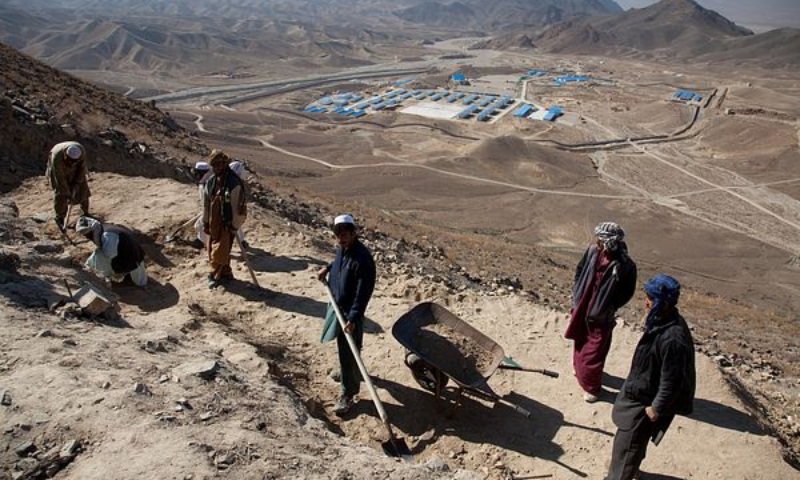SHAST BANDARI: Chinese engineers, alongside officials from the Taliban government, on Wednesday started operations at Afghanistan’s Mes Aynak, home to the world’s second-largest copper deposit, after a 16-year delay caused by war.
Located approximately 40 kilometers (25 miles) southeast of Kabul, Mes Aynak is estimated to hold a substantial 11.5 million tonnes of copper ore, a crucial component in electronics that has seen a sharp rise in demand and price in recent years.
The $3 billion mining deal, inked in 2008 with a Chinese state-owned firm, had languished amid ongoing battles between NATO-led forces and Taliban insurgents. However, with violence subsiding after the Taliban’s assumption of power in 2021 following the withdrawal of foreign troops, efforts to exploit Afghanistan’s vast natural resources have regained momentum.
At a ribbon-cutting ceremony held on Wednesday in Shast Bandari, Taliban officials, along with diplomats and businessmen from Beijing, marked the occasion as excavators initiated construction of a crucial access road to the remote site.
Deputy Prime Minister for Economic Affairs Abdul Ghani Baradar emphasized the urgency of swift progress, stating, “The time wasted in the implementation of the project should be recuperated with speedy work.”
READ ALSO: Israeli Shelling in Gaza Humanitarian Zone Kills 16, Evacuation Ordered
The proposed nine-kilometer (six-mile) road in Logar province is slated for completion by early next year, facilitating logistical access crucial for the mining operations. Officials from the Taliban administration projected a timeline of at least two years before the first copper extraction by the China Metallurgical Group Corporation (MCC).
The initiative comes amidst record-high copper prices, driven by expanding markets in electric vehicles, renewable energy technologies like wind turbines, and the burgeoning demand for artificial intelligence infrastructure reliant on copper wiring.
China, the largest consumer of copper globally, maintains a significant interest in securing reliable access to mineral resources, especially amid geopolitical shifts and economic strategies aimed at bolstering industrial and technological capacities.
Highlighting the strategic significance of the project, China’s ambassador to Afghanistan, Zhao Xing, underscored the deepening economic ties between the two nations, emphasizing the potential for enhanced bilateral trade and collaboration.


























